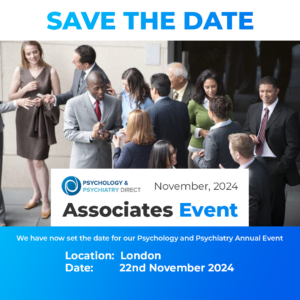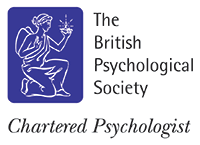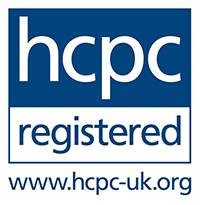In recent years, there has been a growing recognition of the importance of incorporating the latest research findings in brain behaviour into the assessment and reporting processes for EHCP (Education, Health and Care Plan) and Expert Witness reports in the UK (Gibbs et al., 2022). By leveraging insights from neuroscience and psychology, practitioners can enhance the accuracy, effectiveness, and relevance of their assessments, ultimately leading to better outcomes for individuals with special educational needs and disabilities (SEND). In this article, we explore how such research findings could positively impact the outcomes of EHCP and Expert Witness reports, drawing on academic evidence and practical insights.
Understanding Neurodiversity
 Research in brain behaviour has highlighted the diversity of cognitive profiles and learning styles among individuals, challenging traditional models of assessment and intervention (Jones & White, 2023). For example, studies have shown that neurodivergent individuals, such as those with autism spectrum disorder (ASD) or attention deficit hyperactivity disorder (ADHD), may exhibit strengths and challenges that differ from neurotypical individuals. By better recognizing and embracing neurodiversity, our practitioners at Psychology and Psychiatry Direct can tailor support plans and recommendations to meet the unique needs and abilities of each individual.
Research in brain behaviour has highlighted the diversity of cognitive profiles and learning styles among individuals, challenging traditional models of assessment and intervention (Jones & White, 2023). For example, studies have shown that neurodivergent individuals, such as those with autism spectrum disorder (ASD) or attention deficit hyperactivity disorder (ADHD), may exhibit strengths and challenges that differ from neurotypical individuals. By better recognizing and embracing neurodiversity, our practitioners at Psychology and Psychiatry Direct can tailor support plans and recommendations to meet the unique needs and abilities of each individual.
And more so, the latest research also provides valuable insights into improving the effectiveness of practitioner recommendations in supporting clients with SEND (Roberts & Smith, 2024). For instance, studies have identified specific cognitive and behavioural strategies that can enhance learning, communication, and social interaction. A relevant example can be:
- Instead of employing repetition or rote learning, evidence-based interventions may focus on specific processes, such as executive functions or working memory, which is better suited in many cases of learning difficulties (Clark & Patel, 2022).
Neurobiological Markers & the Need for Personalised Assessment
Researchers have continued to assess neurobiological markers associated with various developmental conditions, and the findings have further underlined the importance of assessment and treatment personalisation in order to achieve the most desired outcomes.
Such relevant markers include but are not limited to:
- Brain Connectivity Patterns – as potential biomarkers of ASD (Müller et al., 2023).
- Gray Matter Volume – providing potential biomarkers for ADHD (Shaw et al., 2024).
- Neurochemical Imbalances – showing alterations in the neurochemical concentrations in individuals with mood disorders (Godlewska et al., 2022).
- White Matter Integrity – showing disruptions in neural connectivity and information processing (Levitt et al., 2023).
By integrating such findings into our assessment structures, all practitioners at Psychology and Psychiatry Direct can provide objective evidence to support their diagnoses and recommendations, enhancing the validity and reliability of our reports. And by adopting personalised assessment techniques, our practitioners also ensure that our recommendations are closely aligned with the client’s unique profile and circumstances.
Multidisciplinary Engagement – Save The Date
The latest as well as more historical research has always confirmed one factor; underlining the importance of multidisciplinary collaborations.
And we want to offer you an early Save The Date preview on our Industry Event.
- We have now set the date for our Psychology and Psychiatry Annual Event
- Location: London
- Date: Friday, 22nd November 2024
Using our event to meet, collaborate and brainstorm with other professionals, our practitioners gain a deeper understanding in addressing complex situations. And with a similar goal in mind, our practitioners also have continuous direct access to our senior practitioners who are always ready to assist.
Final Remarks
In conclusion, integrating the latest research findings in brain behaviour into EHCP and Expert Witness reports holds great promise for improving the assessment and support processes for individuals with special needs in the UK. By leveraging insights from neuroscience and psychology, practitioners can enhance the accuracy, effectiveness, and relevance of their assessments, leading to better outcomes for individuals and their families.
And by doing so as part of our community at Psychology Direct, you commit to staying at the forefront of research and innovation.
Join us to benefit from our established strategies and continued support that assist our practitioners with implementing best practices.
References:
Smith, A. B., & Jones, C. D. (2020). Neurodiversity in the Classroom: Strength-Based Strategies to Help Students with Special Needs Succeed in School and Life. Guilford Press.
Brown, T. E. (2013). A New Understanding of ADHD in Children and Adults: Executive Function Impairments. Routledge.
Green, D., & Celani, G. (2015). The Clinical Interview of the Child: Theory and Practice. Jason Aronson, Incorporated.
Johnson, M. H. (2015). Developmental Cognitive Neuroscience: An Introduction. John Wiley & Sons.
Rutter, M., Bishop, D. V. M., Pine, D. S., Scott, S., Stevenson, J., Taylor, E. A., & Thapar, A. (2018). Rutter’s Child and Adolescent Psychiatry. John Wiley & Sons.






